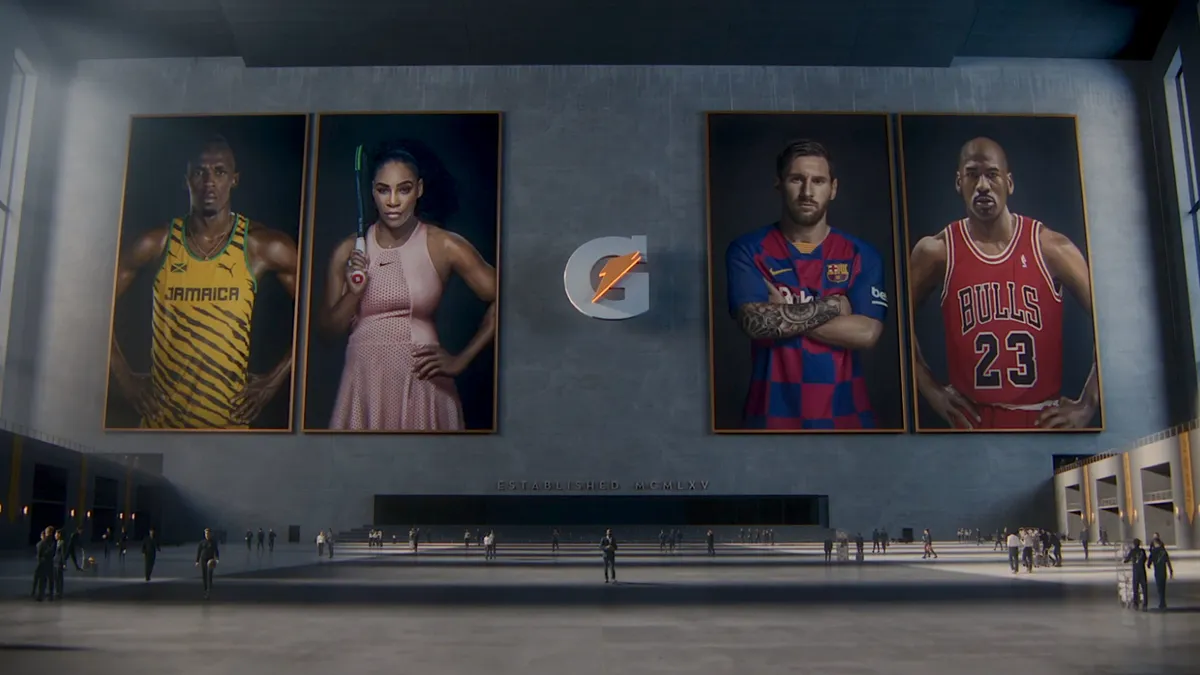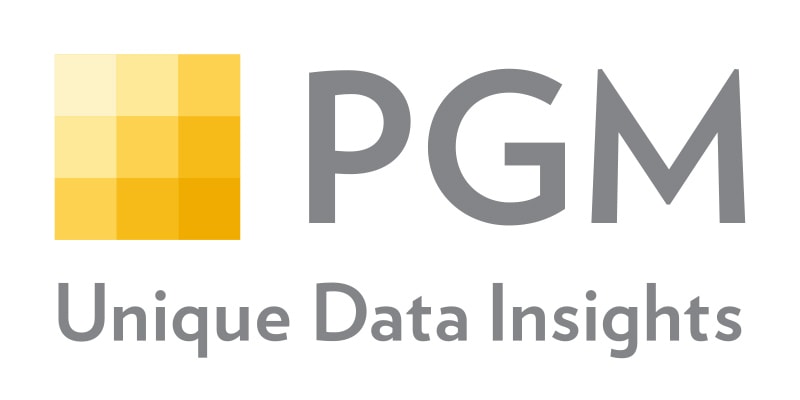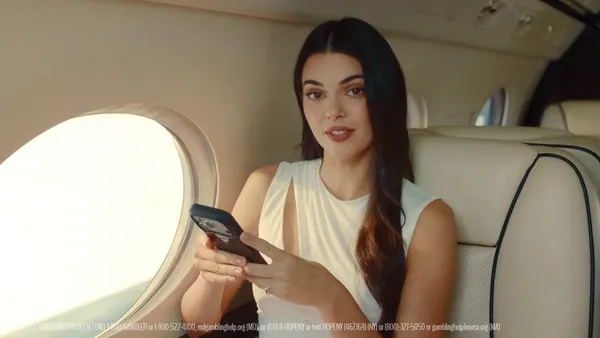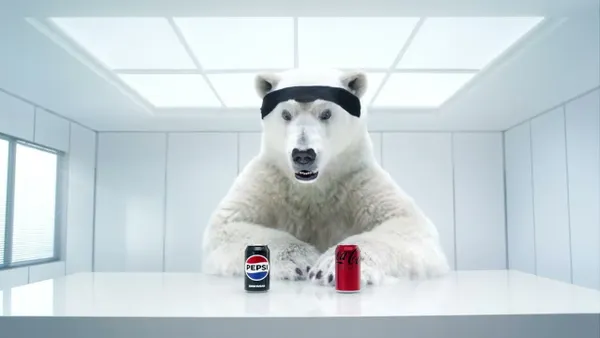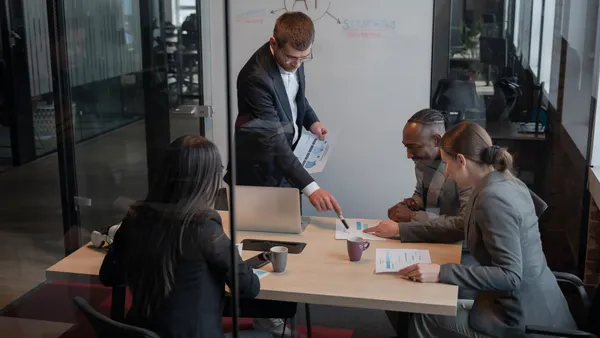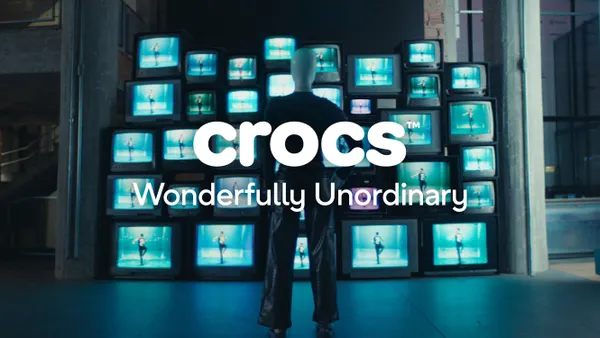Dive Brief:
- PepsiCo's Gatorade brand of sports drinks launched a campaign that brings together some of the world's "greatest of all time (GOAT) athletes for the first time. NBA Hall of Famer Michael Jordan, tennis star Serena Williams, soccer player Lionel Messi and track star Usain Bolt appear in Gatorade's "GOAT Camp" ad that dramatizes a mythical setting where student athletes can train with the world's top stars, per an announcement.
- The campaign is running in key international markets, with a focus on Latin America, a PepsiCo spokesperson told Marketing Dive. A three-minute version of the commercial on YouTube shows a group of promising young athletes who receive mysterious golden tickets that invite them to attend GOAT Camp. After arriving at a secluded sports complex shaped like Gatorade's lightning bolt logo, the students are guided through several exhibits that showcase the talents of sports legends.
- The athletes first see a clip of Jordan dunking a basketball in a game from yesteryear, and marvel as Williams blasts a tennis ball through a concrete wall. Soccer player Messi dribbles a ball through a team of bionic legs running toward him at full speed, and Olympic runner Bolt autographs the students' shirts in the blink of an eye while speeding around an indoor track. The ad ends with Colombian soccer player Gisela Robledo Gil, hinting that she may be the next athlete to join the GOAT pantheon.
Dive Insight:
Gatorade's "GOAT Camp" ad is a sign that PepsiCo is following through on its plans to put more marketing muscle into its "classic brands," even as the food and beverage giant looks to slow the growth of its marketing spend this year. After boosting budgets 12% in 2019, the company aims to be more opportunistic this year, PepsiCo CFO Hugh Johnston said this month in a quarterly conference call. By tapping four of sports' all-time GOATs, Gatorade may be on that list of brands seeing renewed investment.
Gatorade's North American sales grew by a low single-digit percentage last year, continuing recent gains for the sports drink. In 2017, tougher competition resulted in a 0.5% sales dip to $5.9 million, the first drop in five years, The Drum reported. The company plowed money back into the brand with a campaign that included soccer stars Messi and Gabriel Jesus.
Gatorade is leading the U.S. sports drink category with a market share of 72%, followed by Coca-Cola's Powerade at 16%, per Euromonitor data cited in The Drum. Maintaining that market share will be key for Gatorade, with the global sports drink market forecast to grow 4.5% a year until 2025, per Mordor Intelligence.
In the past year, Gatorade's campaigns have included digital media channels to reach younger audiences. The brand last summer launched its first augmented reality Snapchat portal lens, letting users enter an imaginary world seen in the brand's Dr. Seuss-inspired film, "Every Day Is Your Day." The brand previously announced it had begun testing a wearable "sweat patch" to help athletes track their hydration and nutrients lost through perspiration. Gatorade also worked to reach younger audiences with its sponsorship of a podcast called " The Secret to Victory," produced by Gimlet Media.

